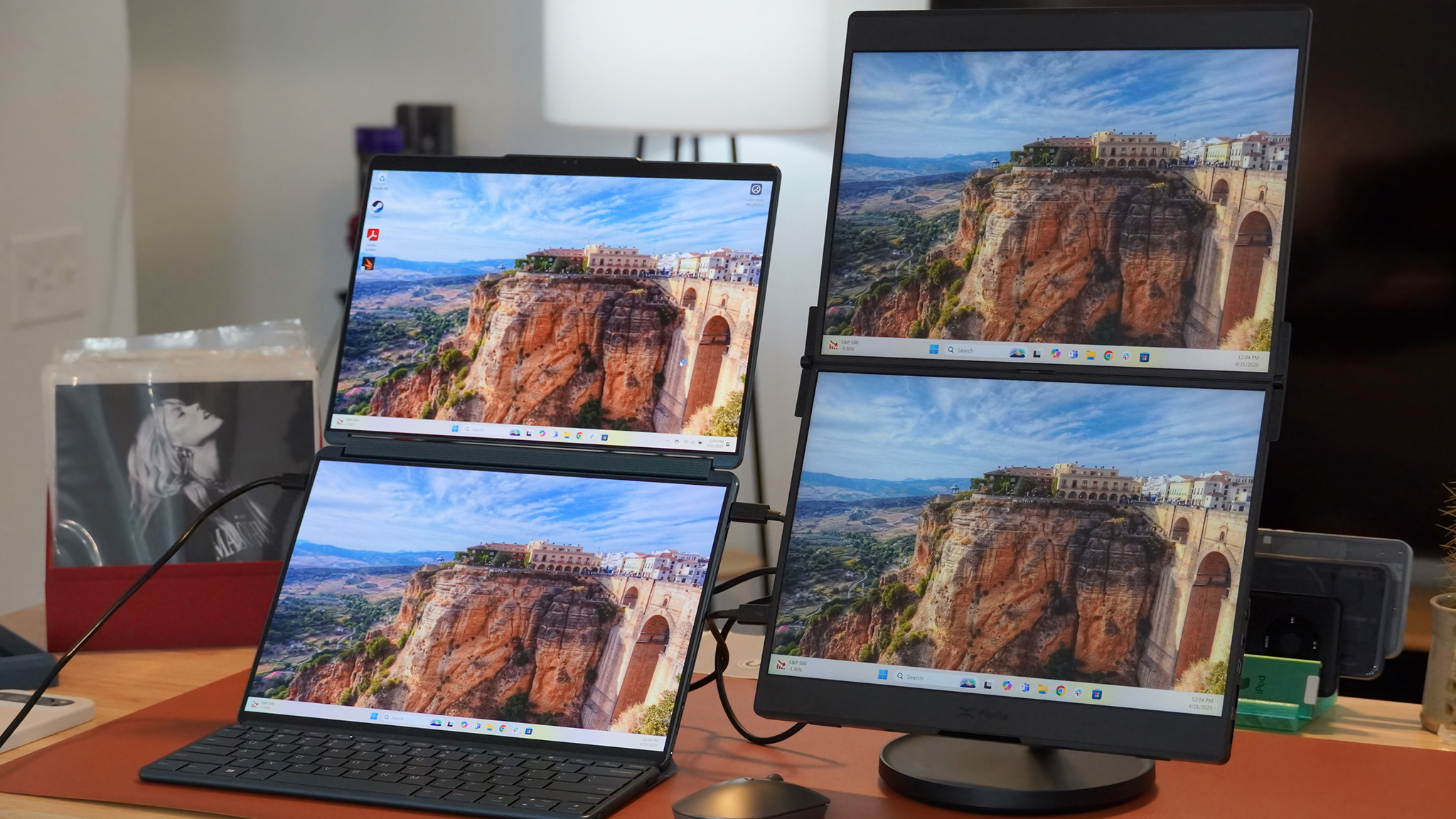Why do carriers suck so much? - Talk Mobile
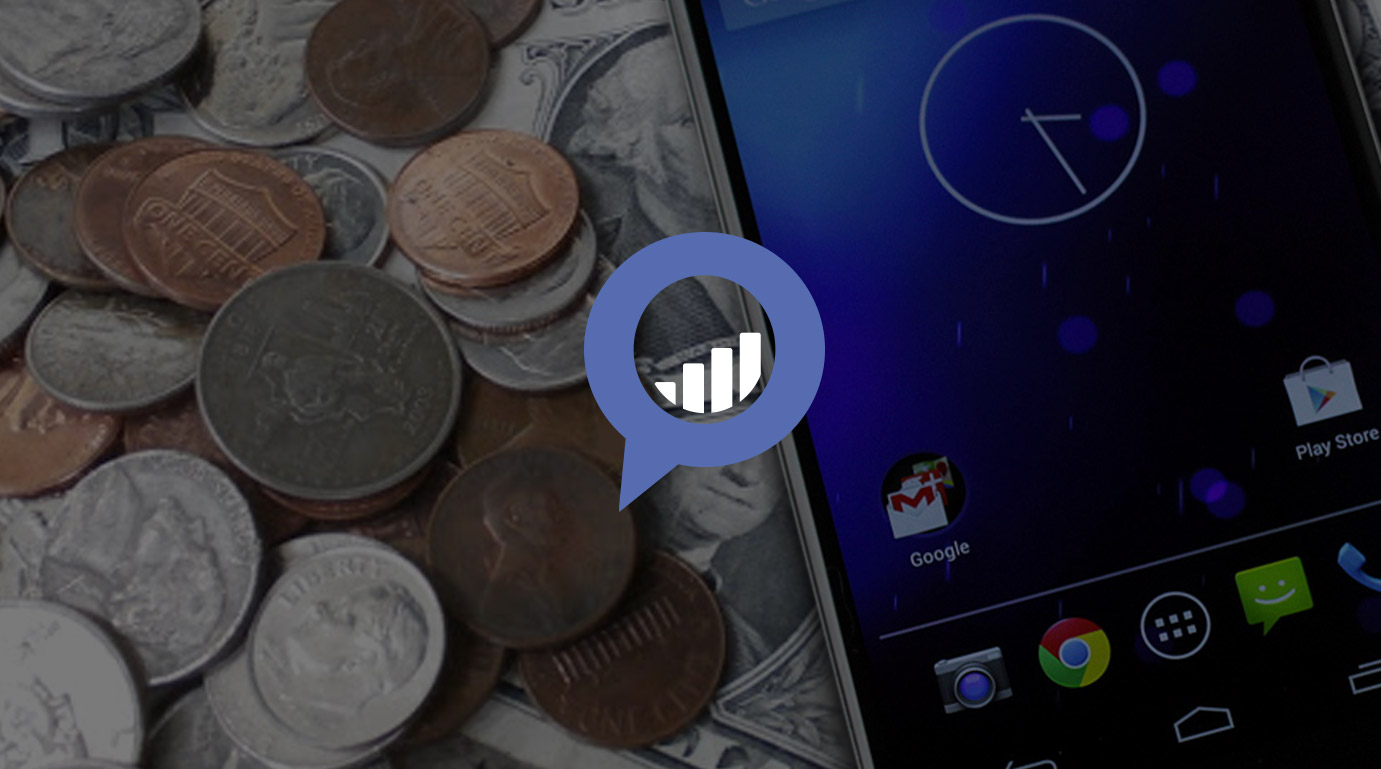
Presented by Blackberry
Talk Mobile Carriers
Why do carriers suck so much?
Cellular carriers are strange entities. They offer devices that in the grand scheme aren't that expensive for what they are, but yet have customers conditioned to expect them to be much cheaper and not think about the long-term cost. They built empires around multi-year contracts, but in an age where mobile technology was advancing at a rate that was positively lethargic compared to today.
They fell into a routine, picking up the old habits, policies, and mindsets of the landline era. The largest carriers are merely permutations of the old wireline telecoms - AT&T and Verizon can both trace their lineage back to the old AT&T monopoly, Sprint began life as the Brown Telephone Company in 1899, T-Mobile comes from the post-World War II German post office, and so on.
So is it history that explains why cellular carriers are lumped in with banks, airlines, and the cable provider as the most hated of companies? Or is it something else in how they do business?
Do they really suck that much, or is it all in our heads?
Be an expert in 5 minutes
Get the latest news from Android Central, your trusted companion in the world of Android
Let's get the conversation started!
by Rene Ritchie, Daniel Rubino, Kevin Michaluk, Phil Nickinson
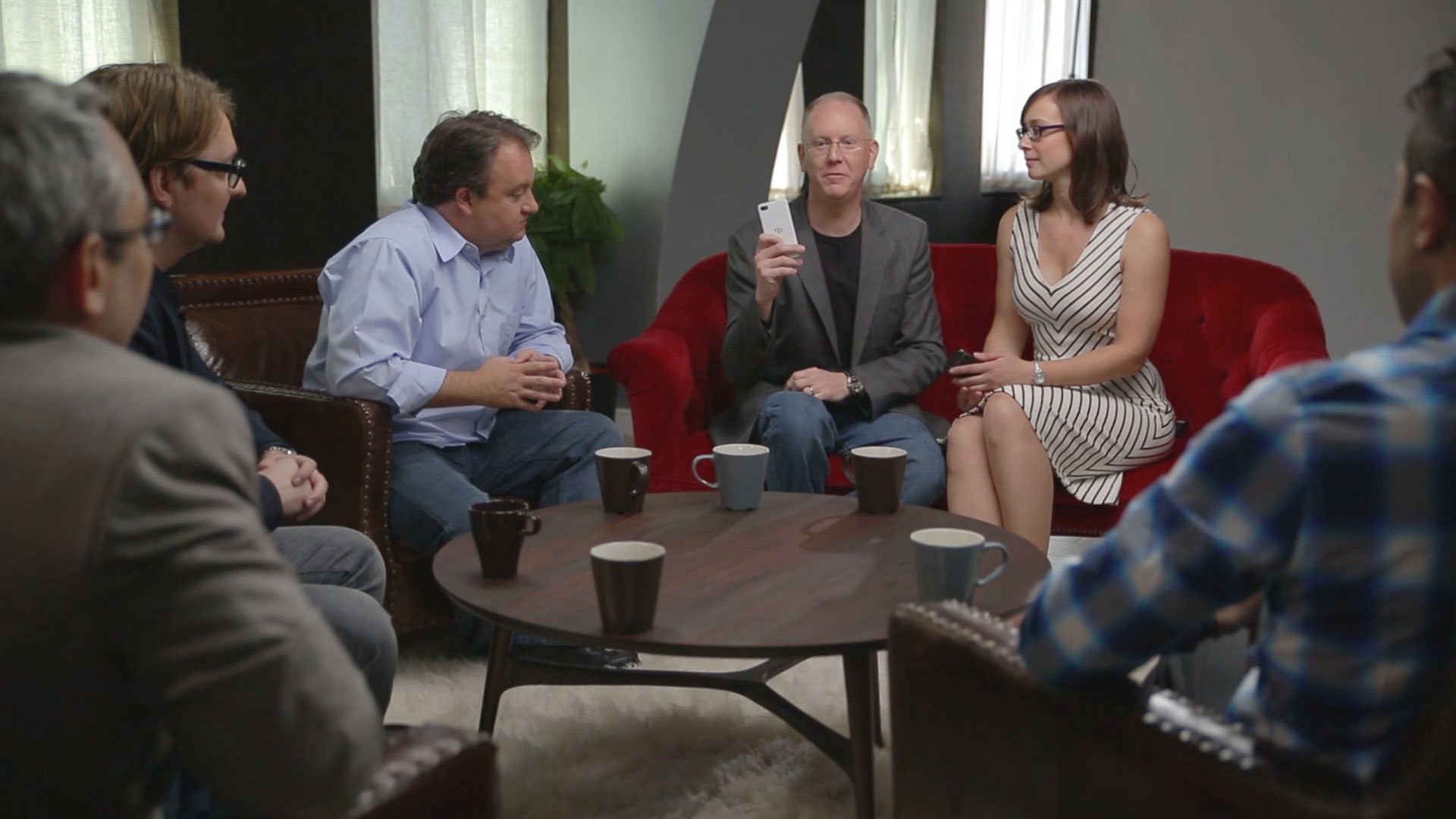




Carrier headaches
Articles navigation
- Contracts
- Subsidies
- Video: Derek Kessler
- Dumbphones
- Video: Alex Dobie
- Competition
- Conclusion
- Comments
- To top

Rene Ritchie iMore
Carriers and the ease of a contract culture
I've said it before and I'll say it again: we don't want to pay $600 or more for a new phone if there's an option to pay "less". Hell, many of us don't even want to pay $200 for a heavily-subsidized, brand new, flagship phone. We want it for free, even though deep in our hearts we know nothing is really free. And we definitely don't want to do the math.
Let's just call it mutually assured status-quo.
So, contracts. The carrier agrees to give us an expensive phone up front at a cheap price or even for free and we agree to pay them each month, every month, for years, both for the service and to pay off the phone.
It's not like this everywhere, of course. Some places don't have the contract culture. You buy your phone, full price, flat out, and then pay monthly for your service. Sure, you pay a lot of money all at once, but then you're free to switch carriers on a monthly basis if you like and presumably can take the phone with you.
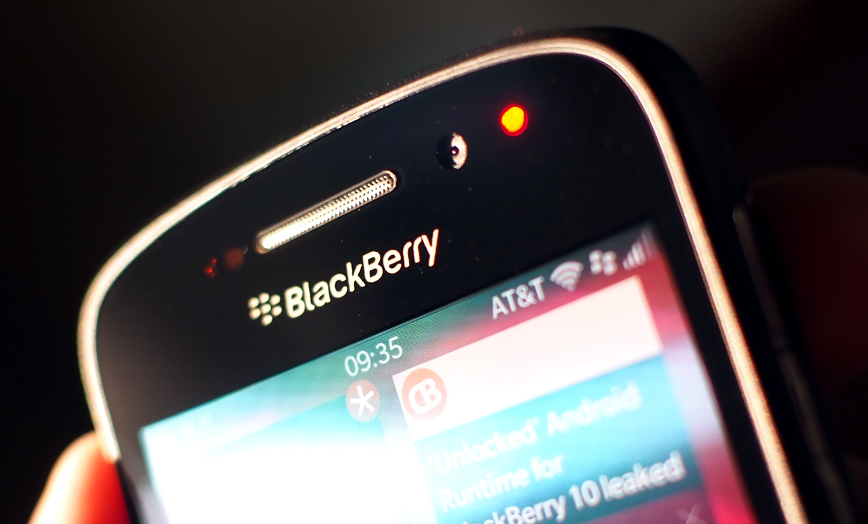
American Telephone and Telegraph Company
The AT&T of today can trace its lineage back more than a century to the formation of the Bell Telephone Company in 1877. For much of its history AT&T was primarily a wireline company and eventually became the dominant phone service company in the United States, holding a government-authorized monopoly over a number of subsidiaries across the nation - the Bell System.
Ma Bell, as AT&T's monopoly came to be nicknamed, was broken up in 1984 by US regulators. AT&T split its regional subsidiaries up into individual companies, including Ameritech, Bell Atlantic (which went on to become , BellSouth, NYNEX, Pacific Telesis, Southwestern Bell, and US West, while keeping long distance service as AT&T. Southwestern Bell was the smallest of the "baby Bells", but through rapid growth and acquisitions SBC became large to purchase its former parent AT&T in 2005 for $16 billion.
At the time, SBC and BellSouth co-operated the Cingular cellular network. Despite the larger size of Cingular and SBC, the merged companies adopted the more recognizable AT&T branding. The new AT&T snapped up BellSouth in 2006, and today owns half of the old Bell System companies. AT&T today operates a nationwide wireless network, landline service, and a fiber internet and TV service.
Some countries (like Germany) have a hybrid model where the phone is paid off with monthly installments, but unlike with a standard contract, the cost is split up into 24 months and once it's paid off the phone charges end while the service charges continue.
Both of these models makes a ton of sense in a place like Europe where traveling between many countries and many carriers is far easier, closer, and more likely than in the North America.
On the carrier side, because of the size of North America, and because you can count the number of countries on half a hand, they have to cover a huge area with wildly varying population densities. Two-year contracts mean they have a reliable way of predicting revenues and planning expenditures to both fill their pockets and improve their networks. And they don't have to worry about competing month-to-month.
So far, it appears to be a mutually beneficial co-dependence that almost everyone involved is terrified to break.
So, contracts.
Talk Mobile Survey: The state of mobile clouds
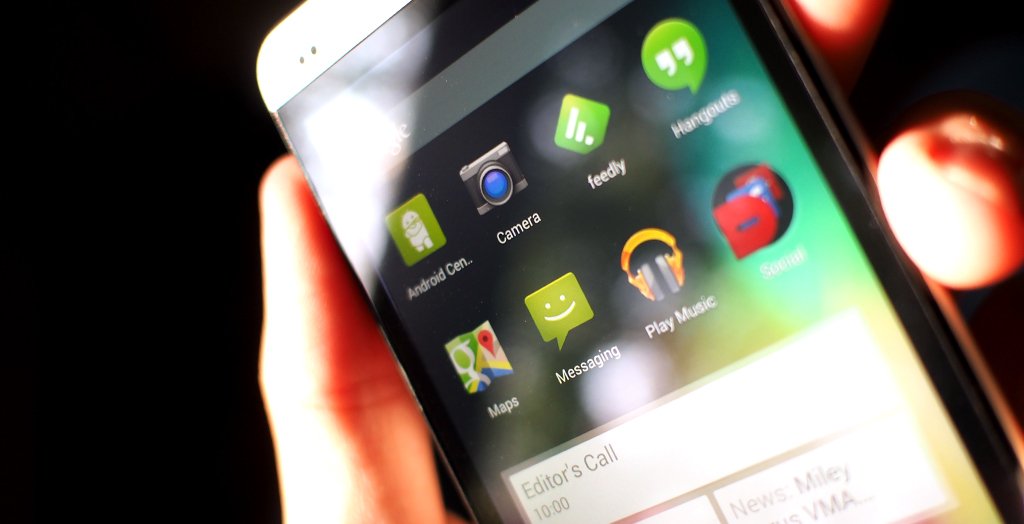

Phil Nickinson Android Central
Carrier subsidies: 'save' upfront, pay later
Carrier subsidies aren't going anywhere anytime soon. They might change names — T-Mobile now has "down payments," but make no mistake, smartphones don't cost $299. Or $199. Or $99. Pay now, or pay later, or pay over 24 months. But one way or another, you're going to pay.
This isn't new, of course.
It used to be simple. We used to pay a little (relatively) up front — $99 or $199 or $199 or sometimes even free — and then you'd pay for the phone over the life of your two-year contract. Most subsidies are paid off in around 20 months, problem is most contracts don't have a line that says that your monthly payment goes down after the subsidy's been covered. because it doesn't.
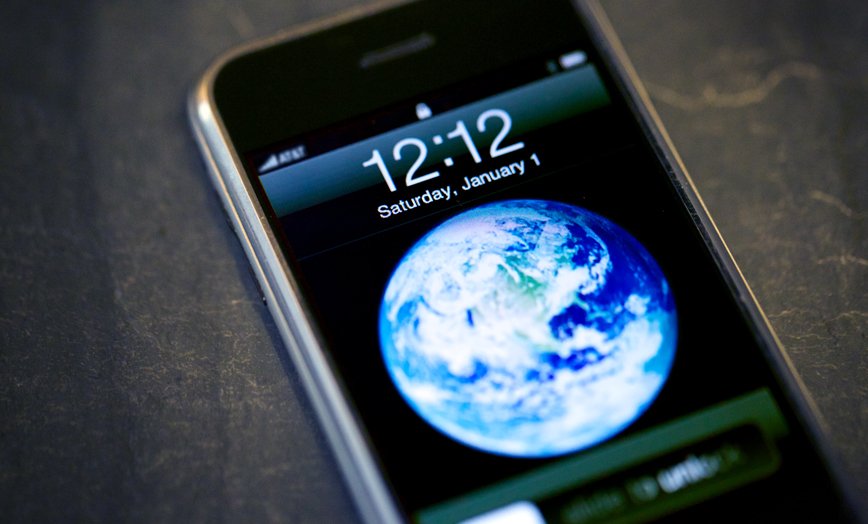
Steve says you can't see it
In 2007, Apple introduced the iPhone. While the iPhone was far from the first smartphone, it was the first that capture mass attention. The iPhone launched on June 29, exclusively on AT&T in the United States. Again, this wasn't the first exclusive carrier arrangement, but it was the first to capture mass attention.
What made the iPhone's launch particularly interesting - beyond all the hype - was the relationship between Apple and AT&T. After having been spurned by Verizon, Apple approached AT&T (then Cingular) to carry the then-secret iPhone. And they had to agree to it without testing, or even seeing, the device. The entire deal is said to have taken close to 18 months to negotiate.
The Apple-AT&T arrangement was made even more unusual thanks to a revenue-sharing model between the two. While the details have never been confirmed, Apple is said to have received approximately $10 per month per iPhone customer. Apple also wholly responsible for the iPhone's marketing. AT&T held the US exclusive on the iPhone until late 2010 when Apple introduced a Verizon-compatible version of the iPhone 4.
Today things are getting really messy. The operators are giving you options to upgrade early — but tucking in even more ways to squeeze even more dollars out of you. That it's all about money shouldn't be a surprise at this point.
It's become even more important to take your time, do your homework, and crunch the numbers.
The subsidy model was simple. Perhaps too simple, but that was the point. Only $99 right now for a really good phone? Sign us up! We've all done it. But it needs to stop. We're smarter than this.
The subsidy model was simple. Perhaps too simple.
There is a way out. First off, you can pay full price for a phone and be free and clear of any operator shenanigans. That's tough on the wallet, though. With most carriers you'll have the option to purchase service without a contract, though there's no promise that you'll have a lower rate because there's no subsidy involved. In fact, you probably won't.
Android fans probably have the best deal, though, with devices Google's low-cost Nexus 4 starting at $299. That's out the door, SIM-unlocked. Use it on any GSM network you want. You can get it in any flavor you want, so long as it's Android.
Much of the world doesn't subject itself to this sort of mathematical torture. You buy the phone and pay your plan. It doesn't matter how much the subsidy is, because it's easy.
Is it time for North America to get away from the subsidy model? Absolutely. And the carriers will fight to their very last breath to keep you from doing it.
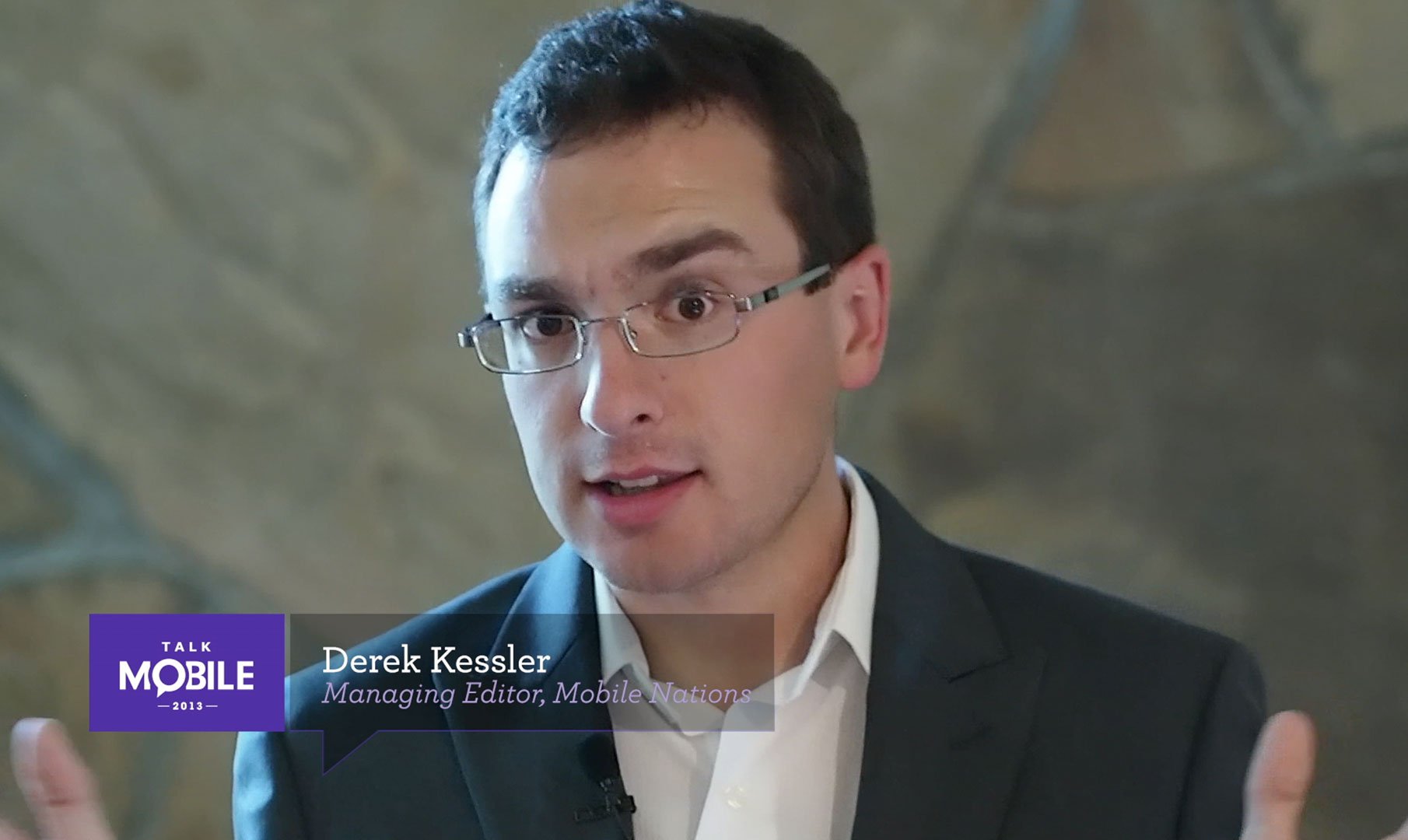
I don't like giving carriers free money, and neither should you.
- Derek Kessler / Managing Editor, Mobile Nations
Q
If you could pay up front for a smartphone and less monthly, would you?
876 comments
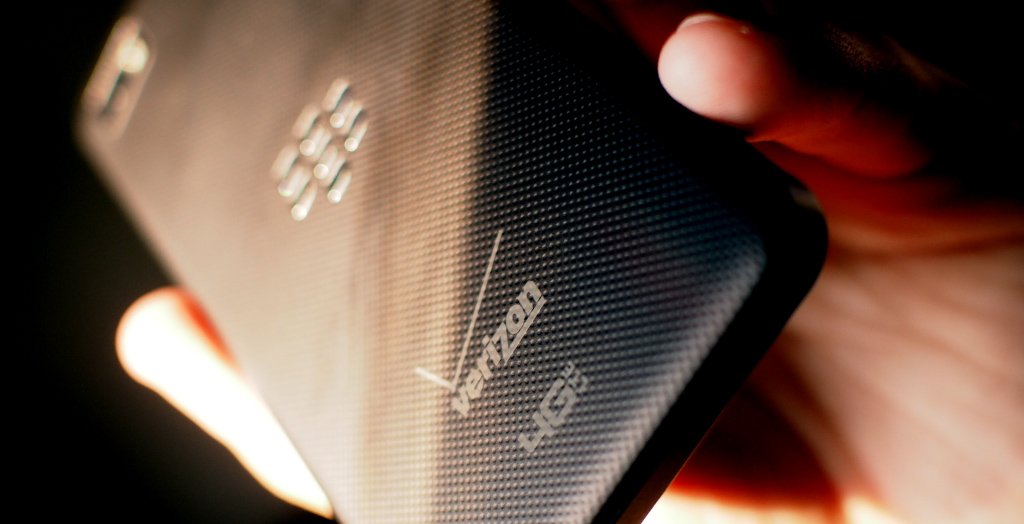

Kevin Michaluk CrackBerry
The smartphone is the new dumbphone
There was a time, not that long ago, where the only way you could get an acceptably good experience from a smartphone was to buy the top-of-the-line model. You needed the power of a high-end processor and gobs of RAM to get anything done without stutter and lag and the general unpleasantness that comes from using an underpowered device.
In the past two years, that has changed. You'll still get the fastest, smoothest, bestest experience using the highest-end smartphones, but even most gadget nerds would probably be able to comfortably get by with today's mid-range phones.
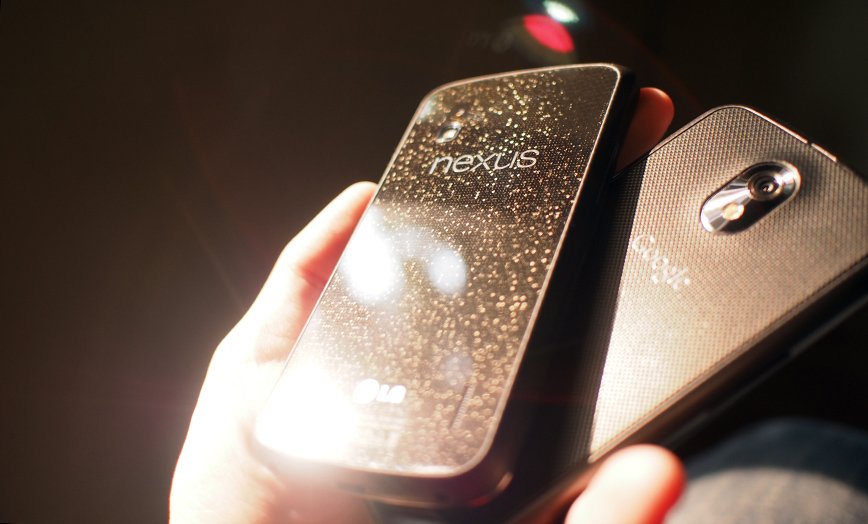
Do androids dream of stock smartphones?
After struggling for two years against Apple's iPhone, in 2010 Google and HTC unveiled the Nexus One. A new Android 2.1-powered smartphone built by HTC but with heavy input by Google, the Nexus One was described as "pure" Android - it carried none of the software modifications that manufacturers HTC, Samsung, and LG were keen to apply. The Nexus One was sold independently of carriers through Google's own online store.
While the Nexus One was not a smash hit, it wasn't expected to be. Google stated that the Nexus One was meant more as an example of what the Android platform was capable of. The Nexus One was followed later in 2010 by the Nexus S and in 2011 with the Galaxy Nexus (both produced by Samsung) and in 2012 by the LG Nexus 4.
2013 so far has not seen a new Nexus smartphone release, though Google has partnered with both HTC and Samsung to release "Google Play editions" of their flagship devices. The Samsung Galaxy S4 and HTC One are both available through the Google Play online store with a mostly "stock" Android installation while maintaining the hardware design of the versions sold through carriers.
What's really shocking are the smartphones at the lowest price-points, the phones that are free with a contract, or even just a few hundred dollars or less off contract (compared to a $600 or more range-topper from Apple, Samsung, LG, BlackBerry, Nokia, et al). Take the Nokia Lumia 521, which with a 5MP camera, 4-inch 800x480 screen, 8GB storage, in a sub-10 cm thick body, all for as low as $125. Off contract! It's crazy! Out the door, with a smartphone that's not state-of-the-art, but is still more than adequate for the average user and runs a thoroughly modern mobile operating system.
The Nokia Lumia 521 is $125. Off contract! It's crazy!
We're approaching the point where the smartphone is going to all but displace the dumbphone, if it hasn't already. There's going to be a place for dumbphones for years to come, just as cellular hasn't come close to killing off landlines. Dumbphones are simple, durable, have long lasting batteries, and - most importantly - are cheap as hell. Smartphones are quickly closing in on those marks, though durability and battery life sometimes leave something to be desired.
Dumbphone technology has always been slow to evolve. What helped smartphones displace a lot of dumbphone sales has been the breakneck pace of smartphone development. With new and more powerful devices hitting shelves every month, it doesn't take long for what was high-end to become middle-tier and then low-end. Best part is, it's no less capable than it was two years earlier!
If you don't need the very best, which you probably really don't, there are plenty of cheap options in smartphone land. Dumbphones aren't going to go away, but they're also not going to be hanging around for much longer either.
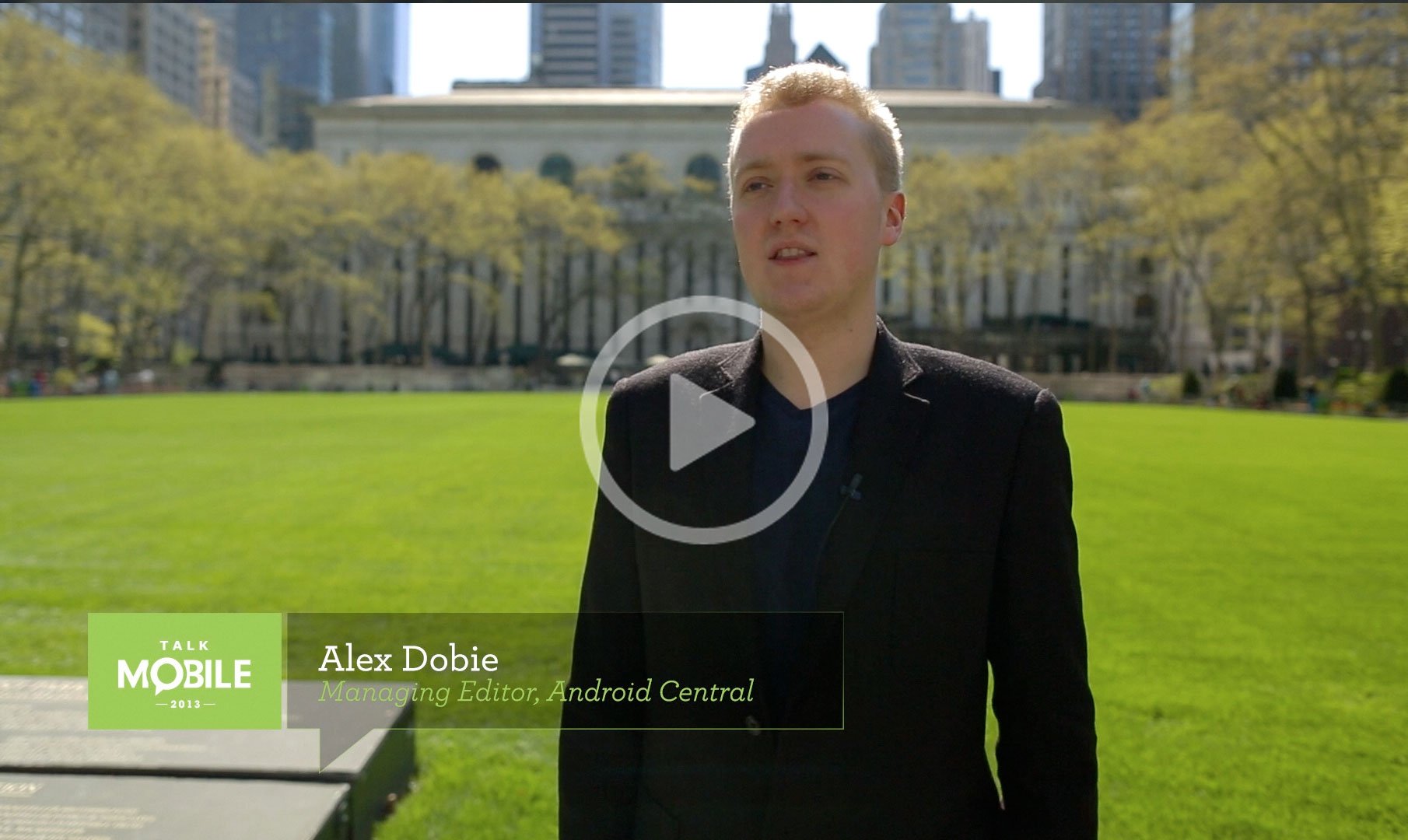
Within the next 5 years entry-level smartphones will have all but replaced dumbphones.
- Alex Dobie / Managing Editor, Android Central
Q
Do you have to have the latest greatest smartphone, or just one that is good enough?
876 comments
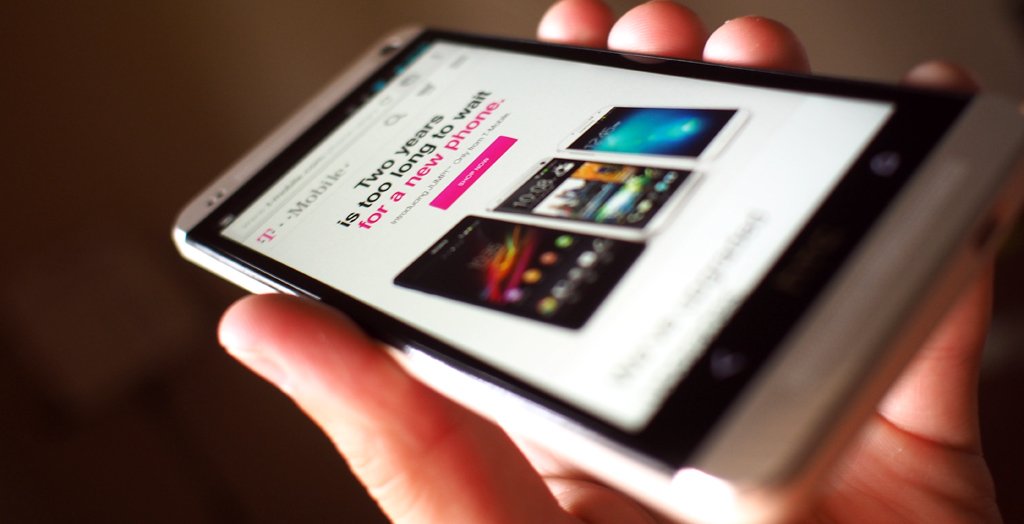

Daniel Rubino Windows Phone Central
Don't give me more carriers - give me better ones
Competition, many assert, is the heart of modern market capitalism. Yet every company out there is set on eliminating their competition; the achievement of monopoly is the real goal. AT&T would prefer if Verizon would just go away, same with T-Mobile and Sprint. Competition is the best part of capitalism for consumers, yet monopoly status is the pinnacle of capitalistic achievement.
Of course, we don't want a single-carrier system where they're free to charge whatever they want. But do we need more carriers? Do we want a system like in India where there are eight carriers with more than 50 million customers apiece (yes, there are over a billion people there, but the point stands).
The problem with the current system, at least in North America, isn't a lack of competing companies. There are four major players between AT&T, Sprint, T-Mobile, and Verizon, and dozens of smaller national virtual, and regional operators. The issue is with their rarely competing beyond talking points of "largest" or "fastest".
The problem isn't a lack of companies. It's that they rarely compete beyond talking points of "largest or "fastest".
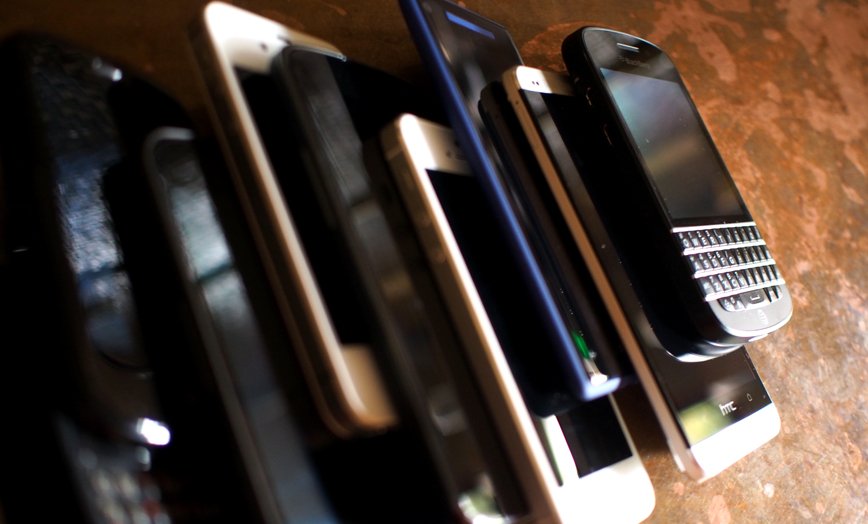
Jump to the UnCarrier
After years of contracts with subsidized phones on all the major US carriers, T-Mobile in March 2013 launched their "UnCarrier" initiative, which dropped all contracts, phone subsidies, and data overage fees. While T-Mobile had offered contract-free plans for over a year, this marked the first time a US carrier had dropped contracts and subsidies entirely. Phones were still available with a downpayment and two years of $20 monthly installments.
The plan worked by splitting the cost of the phone from the service, allowing customers to purchase the two independently, bring their own phones for T-Mobile service, and even cancel their service without paying an ETF (though still having to pay off the rest of the phone). Following the dropping of contracts, T-Mobile in July 2013 launched "Jump", a fee-based add-on for customers that allows them to trade in their current smartphone to for a new one at the price a new customer would pay up to twice a year.
Both AT&T and Verizon quickly reacted by introducing their own versions of an upgrade plan within a week of T-Mobile's announcement, though still tied to traditional two-year service contracts.
Thankfully, T-Mobile US under the leadership of CEO John Legere is shaking things up. They've ditched traditional contracts and decoupled payments for devices from the service. T-Mobile also introduced a straight-forward plan for frequent device upgraders, and while we're not debating merits here, there's no denying the conversation it sparked.
Within a week both AT&T and Verizon rushed to introduce similar upgrade plans, though they concocted a fee to be tacked onto existing service charges. Whether or not they are worth the cost is a discussion for another time, but it shows that competition can be alive and well, if only the carriers were more willing to get creative. T-Mobile has at least shaken things up, though there's no saying how long they'll be able to keep up the disruptions.
It's the scrappy smaller-but-still big carriers like T-Mobile and Sprint that stand the best chance at making an impact in the US. AT&T and Verizon, while still always clamoring for more customers, are in comfortable positions. Sprint and T-Mobile have less to lose, and everything to gain, and can stir the pot with biannual upgrades, unlimited data, and the like. T-Mobile's especially scrappy after (irony alert) the US government struck down their attempt to merge into AT&T, and Sprint is likely to be more so after being acquired by Japanese firm Softbank.
In the end, what we need isn't more carriers. We need better carriers.
Q
What about carriers is the most broken?
876 comments
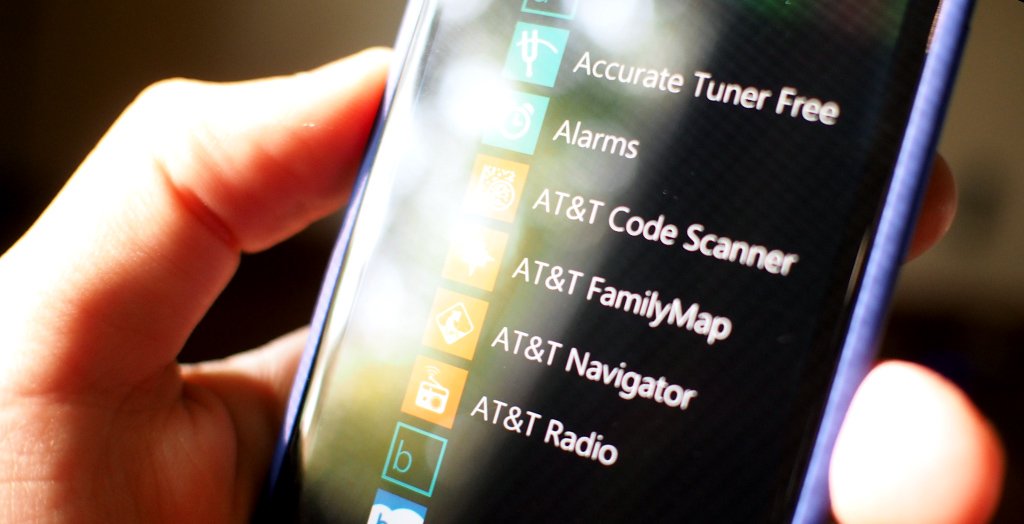
Conclusion
Carrier subsidies aren't going anywhere anytime soon. Nor are service contracts, monopolistic desires, or grossly overcharging for text messages. These are things that define the modern cellular carrier, and as with all thing status quo, it takes more than just wanting it to change for things to change.
It'd be easy to argue that cellular operators suck because of their old origins. Unlike the companies that make the devices and software (excepting 148-year-old paper mill Nokia), the carriers are downright ancient. They're also the most heavily regulated segment of the mobile ecosystem. But all of this is just saying what's wrong with carriers.
They're often backwards, always greedy, occasionally creative, often snippy, and sometimes scrappy. But they're not broken beyond repair. The subsidy and contract culture can be changed, but how do we get that change to happen? Is it the carriers that need to be convinced, or the customers?

